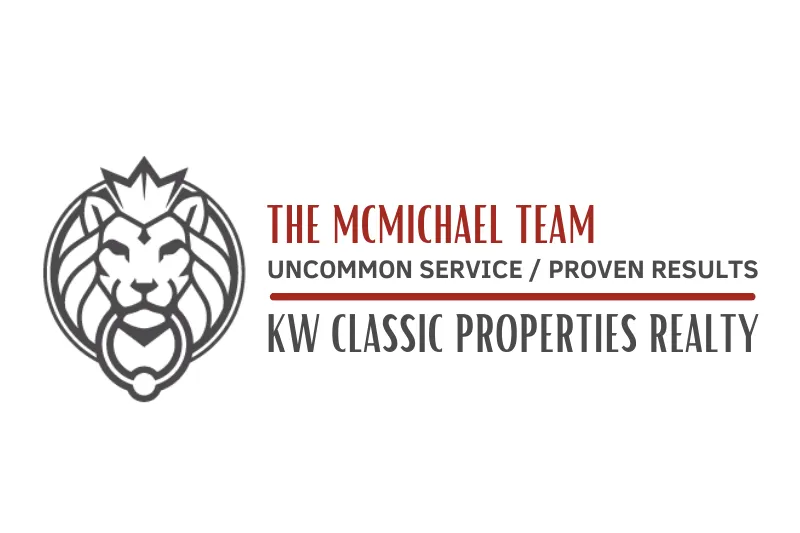Recent Posts

Understanding the Process of Obtaining a Mortgage for First-Time Homebuyers
“Once you're a homeowner, your house will probably be the biggest, long-term investment you have. Every dollar you spend on a mortgage or down payment is like putting money in a house-sized piggy bank, so it makes sense to look at home buying through the lens of saving.” - Rachel Cruze
Introduction:
Purchasing your first home is a dream many aspire to fulfill and obtaining a home loan can help turn that dream into a reality. If you're a first time homebuyer the process can seem daunting. This article aims to provide you with insights into home loans and offer tips to simplify the process.

Careful planning and research are key to a successful homebuying experience.
The Importance of Home Loans
Affording Your Ideal Home
A home loan is essentially a loan designed for purchasing a house. It enables you to acquire the home you desire even if you haven't saved up all the funds required. Instead of paying for the property upfront, you make monthly payments that make owning your dream home more manageable.
Home Loans versus Renting
When you rent a property you pay rent but yon't have ownership rights. However, with a home loan, your monthly payments contribute towards building equity in an asset that will eventually be yours. It's akin, to saving money for ownership.
Varieties of Home Loans
Fixed-Rate Mortgages
Fixed-rate mortgages provide stability and predictability. Your interest rate remains constant throughout the loan term, simplifying your financial planning. This is an ideal choice for those who want to avoid surprises in their monthly mortgage payments.
Adjustable-Rate Mortgages
There are also mortgages known as adjustable rate mortgages (ARMs) where the interest rates can vary over time. Although they may initially start at a lower rate there is a possibility for them to increase making them more suitable for individuals comfortable with taking on some level of risk or those planning to live in their homes for a shorter duration.
Government-Backed Mortgages
Loans backed by the government, such as FHA, VA and USDA loans, aim to assist groups of people like first-time home buyers who may have limited funds for a down payment or lower credit scores.
Assessing Your Financial Readiness
Credit Score and History
Before applying for a mortgage it is crucial to consider your credit score and history since lenders evaluate these factors when determining your eligibility. Checking your credit report beforehand is essential. A higher credit score can enhance your chances of obtaining a more favorable mortgage offer.
Down Payment and Closing Costs
When purchasing a home you will need funds in the form of a down payment and closing costs. While 20% down payment is ideal, many mortgage programs allow for much lower down payments. The down payment serves as a deposit demonstrating your commitment to the lender to buying the property. Closing costs encompass fees associated with services such as appraisal fees, title insurance and attorney fees involved in completing the transaction. Make sure you're prepared for the expenses that come with buying a home.
Debt-to-Income Ratio
Lenders also take into account your income and existing debts when assessing your ability to handle mortgage payments. A lower ratio of debt-to-income demonstrates financial stability and enhances your mortgage approval prospects. It's advisable to pay off any debts before applying.
Steps to Take Before Applying
Saving for a Down Payment
It's wise to start saving for a down payment as early as possible. The more you can contribute upfront the less you'll need to borrow, resulting in lower payments.
Reducing Existing Debts
Clearing debts like credit card balances and car loans can improve your financial situation and make it easier for you to secure a mortgage.
Building Strong Credit
Making on-time payments and avoiding opening new credit accounts before applying for a mortgage can positively impact your credit score.
Obtaining Pre-Approval
Understanding Pre-Approval
Before embarking on your home search it's beneficial to obtain pre-approval for a mortgage. This involves a lender reviewing your financial information and providing you conditional commitment for a specific loan amount they're willing to offer. Pre-approval not only demonstrates you are a serious buyer, It also helps establish your budget for your home search.
Advantages of Pre-Approval
Being pre-approved provides several benefits. Knowing what you can afford is crucial as it simplifies the buying process and demonstrates your commitment to the sellers. Additionally it allows you to lock in a favorable interest rate, protecting you from potential rate hikes.
Finding the Right Lender
Researching Lenders
When searching for a lender, take your time to research lenders. Read reviews, compare interest rates. and look for a lender with a reputation for great customer service. Your real estate agent and friends can give you recommendations.
Comparing Loan Offers
Request loan estimates from different lenders. These estimates provide information about your mortgage, including interest rates, closing costs, and monthly payments. Comparing these offers will help you make an informed decision.
The Application Process
Gathering Necessary Documents
Before applying for a mortgage gather documents such as pay stubs, tax returns, bank statements and proof of employment. Having these documents ready in advance will make the application process smoother.
Completing the Application
Work closely with your chosen lender to ensure that you accurately fill out the mortgage application form. Be prepared to provide additional documentation or information if required during the underwriting process.
Underwriting and Approval
The Role of the Underwriter
The underwriter plays a crucial role in reviewing and evaluating your mortgage application to ensure it meets all of the lender's requirements. They may request further information during this stage or seek clarification on specific financial aspects.
Potential Approval Conditions
It is not uncommon for approval to come with conditions attached. For example, additional proof of income may be required. Fulfilling these conditions is essential to secure final approval for your mortgage.
Understanding the Impact of Interest Rates
How Interest Rates Affect Your Mortgage
Interest rates can be seen as the expense associated with borrowing money. Lower rates translate to lower overall costs, while higher rates result in increased expenses. Grasping the dynamics of interest rates is essential for making informed decisions about your mortgage.
Factors Influencing Interest Rates
Interest rates can fluctuate due to factors such as economic conditions, inflation rates, and government policies. Being mindful of these factors allows you to anticipate changes in interest rates and plan accordingly.
Loan Closing Process
Finalizing the Mortgage
The closing marks the completion of your mortgage journey, as ownership of the property is transferred to you. During this stage, you will need to sign various documents, including a loan repayment agreement (the promissory note) and a deed of trust.
Closing Costs and Documentation
Prepare yourself for closing costs, which encompass fees related to services like title searches, appraisals, and attorney fees. Carefully review all closing documents for accuracy and clarity before affixing your signature.
Responsibilities as a Homeowner
Monthly Mortgage Payments
Once you become a homeowner it becomes crucial to make your monthly mortgage payments on time. These payments cover both the loan amount and interest charges for the loan and help you contribute to the growth of equity in your home.
Property Taxes and Insurance
In addition to mortgage payments, you will also be responsible for paying property taxes and homeowners insurance. Make sure you allocate money for these expenses so that you won't be caught off guard.
Avoiding Common Mistakes When Getting a Mortgage
Sticking to Your Budget
It's important not to purchase a home that stretches your budget too thin. Stick with a budget that allows you to comfortably cover your mortgage payments and other expenses.
Getting a Thorough Home Inspection
Before making the purchase it's crucial to have a home inspection done. Skipping this step could result in unexpected and costly repairs down the line. You want to avoid these types of financial hardships.
Conclusion
Purchasing your home is a significant milestone. By understanding mortgages, organizing your finances, and making informed decisions you can confidently work towards achieving your dream of homeownership. Your ideal home is closer than you think.
FAQs (Frequently Asked Questions)
What credit score do I need to qualify for a mortgage?
While the minimum credit score varies, a score of around 620 is typically required. A higher credit score often leads to more favorable loan terms.Is it better to get pre-approved before house hunting?
Yes, obtaining pre-approval is recommended before beginning your home search. It provides a clear understanding of your budget, streamlines the buying process, and makes your offers more appealing to sellers.What's the difference between a fixed-rate and adjustable-rate mortgage?
A fixed-rate mortgage maintains a constant interest rate throughout the loan term, while an adjustable-rate mortgage (ARM) features a variable rate that can change over time.What are the typical closing costs for a first-time homebuyer?
Closing costs for first-time buyers usually range from 2% to 5% of the home's purchase price. These costs encompass various services, including appraisals and title searches.How can I avoid common mortgage pitfalls?
To steer clear of common mortgage mistakes, adhere to your budget, conduct thorough inspections, and seek professional advice when needed. Careful planning and research are key to a successful homebuying experience.
Recent Posts

Understanding the Process of Obtaining a Mortgage for First-Time Homebuyers
“Once you're a homeowner, your house will probably be the biggest, long-term investment you have. Every dollar you spend on a mortgage or down payment is like putting money in a house-sized piggy bank, so it makes sense to look at home buying through the lens of saving.” - Rachel Cruze
Introduction:
Purchasing your first home is a dream many aspire to fulfill and obtaining a home loan can help turn that dream into a reality. If you're a first time homebuyer the process can seem daunting. This article aims to provide you with insights into home loans and offer tips to simplify the process.

Careful planning and research are key to a successful homebuying experience.
The Importance of Home Loans
Affording Your Ideal Home
A home loan is essentially a loan designed for purchasing a house. It enables you to acquire the home you desire even if you haven't saved up all the funds required. Instead of paying for the property upfront, you make monthly payments that make owning your dream home more manageable.
Home Loans versus Renting
When you rent a property you pay rent but yon't have ownership rights. However, with a home loan, your monthly payments contribute towards building equity in an asset that will eventually be yours. It's akin, to saving money for ownership.
Varieties of Home Loans
Fixed-Rate Mortgages
Fixed-rate mortgages provide stability and predictability. Your interest rate remains constant throughout the loan term, simplifying your financial planning. This is an ideal choice for those who want to avoid surprises in their monthly mortgage payments.
Adjustable-Rate Mortgages
There are also mortgages known as adjustable rate mortgages (ARMs) where the interest rates can vary over time. Although they may initially start at a lower rate there is a possibility for them to increase making them more suitable for individuals comfortable with taking on some level of risk or those planning to live in their homes for a shorter duration.
Government-Backed Mortgages
Loans backed by the government, such as FHA, VA and USDA loans, aim to assist groups of people like first-time home buyers who may have limited funds for a down payment or lower credit scores.
Assessing Your Financial Readiness
Credit Score and History
Before applying for a mortgage it is crucial to consider your credit score and history since lenders evaluate these factors when determining your eligibility. Checking your credit report beforehand is essential. A higher credit score can enhance your chances of obtaining a more favorable mortgage offer.
Down Payment and Closing Costs
When purchasing a home you will need funds in the form of a down payment and closing costs. While 20% down payment is ideal, many mortgage programs allow for much lower down payments. The down payment serves as a deposit demonstrating your commitment to the lender to buying the property. Closing costs encompass fees associated with services such as appraisal fees, title insurance and attorney fees involved in completing the transaction. Make sure you're prepared for the expenses that come with buying a home.
Debt-to-Income Ratio
Lenders also take into account your income and existing debts when assessing your ability to handle mortgage payments. A lower ratio of debt-to-income demonstrates financial stability and enhances your mortgage approval prospects. It's advisable to pay off any debts before applying.
Steps to Take Before Applying
Saving for a Down Payment
It's wise to start saving for a down payment as early as possible. The more you can contribute upfront the less you'll need to borrow, resulting in lower payments.
Reducing Existing Debts
Clearing debts like credit card balances and car loans can improve your financial situation and make it easier for you to secure a mortgage.
Building Strong Credit
Making on-time payments and avoiding opening new credit accounts before applying for a mortgage can positively impact your credit score.
Obtaining Pre-Approval
Understanding Pre-Approval
Before embarking on your home search it's beneficial to obtain pre-approval for a mortgage. This involves a lender reviewing your financial information and providing you conditional commitment for a specific loan amount they're willing to offer. Pre-approval not only demonstrates you are a serious buyer, It also helps establish your budget for your home search.
Advantages of Pre-Approval
Being pre-approved provides several benefits. Knowing what you can afford is crucial as it simplifies the buying process and demonstrates your commitment to the sellers. Additionally it allows you to lock in a favorable interest rate, protecting you from potential rate hikes.
Finding the Right Lender
Researching Lenders
When searching for a lender, take your time to research lenders. Read reviews, compare interest rates. and look for a lender with a reputation for great customer service. Your real estate agent and friends can give you recommendations.
Comparing Loan Offers
Request loan estimates from different lenders. These estimates provide information about your mortgage, including interest rates, closing costs, and monthly payments. Comparing these offers will help you make an informed decision.
The Application Process
Gathering Necessary Documents
Before applying for a mortgage gather documents such as pay stubs, tax returns, bank statements and proof of employment. Having these documents ready in advance will make the application process smoother.
Completing the Application
Work closely with your chosen lender to ensure that you accurately fill out the mortgage application form. Be prepared to provide additional documentation or information if required during the underwriting process.
Underwriting and Approval
The Role of the Underwriter
The underwriter plays a crucial role in reviewing and evaluating your mortgage application to ensure it meets all of the lender's requirements. They may request further information during this stage or seek clarification on specific financial aspects.
Potential Approval Conditions
It is not uncommon for approval to come with conditions attached. For example, additional proof of income may be required. Fulfilling these conditions is essential to secure final approval for your mortgage.
Understanding the Impact of Interest Rates
How Interest Rates Affect Your Mortgage
Interest rates can be seen as the expense associated with borrowing money. Lower rates translate to lower overall costs, while higher rates result in increased expenses. Grasping the dynamics of interest rates is essential for making informed decisions about your mortgage.
Factors Influencing Interest Rates
Interest rates can fluctuate due to factors such as economic conditions, inflation rates, and government policies. Being mindful of these factors allows you to anticipate changes in interest rates and plan accordingly.
Loan Closing Process
Finalizing the Mortgage
The closing marks the completion of your mortgage journey, as ownership of the property is transferred to you. During this stage, you will need to sign various documents, including a loan repayment agreement (the promissory note) and a deed of trust.
Closing Costs and Documentation
Prepare yourself for closing costs, which encompass fees related to services like title searches, appraisals, and attorney fees. Carefully review all closing documents for accuracy and clarity before affixing your signature.
Responsibilities as a Homeowner
Monthly Mortgage Payments
Once you become a homeowner it becomes crucial to make your monthly mortgage payments on time. These payments cover both the loan amount and interest charges for the loan and help you contribute to the growth of equity in your home.
Property Taxes and Insurance
In addition to mortgage payments, you will also be responsible for paying property taxes and homeowners insurance. Make sure you allocate money for these expenses so that you won't be caught off guard.
Avoiding Common Mistakes When Getting a Mortgage
Sticking to Your Budget
It's important not to purchase a home that stretches your budget too thin. Stick with a budget that allows you to comfortably cover your mortgage payments and other expenses.
Getting a Thorough Home Inspection
Before making the purchase it's crucial to have a home inspection done. Skipping this step could result in unexpected and costly repairs down the line. You want to avoid these types of financial hardships.
Conclusion
Purchasing your home is a significant milestone. By understanding mortgages, organizing your finances, and making informed decisions you can confidently work towards achieving your dream of homeownership. Your ideal home is closer than you think.
FAQs (Frequently Asked Questions)
What credit score do I need to qualify for a mortgage?
While the minimum credit score varies, a score of around 620 is typically required. A higher credit score often leads to more favorable loan terms.Is it better to get pre-approved before house hunting?
Yes, obtaining pre-approval is recommended before beginning your home search. It provides a clear understanding of your budget, streamlines the buying process, and makes your offers more appealing to sellers.What's the difference between a fixed-rate and adjustable-rate mortgage?
A fixed-rate mortgage maintains a constant interest rate throughout the loan term, while an adjustable-rate mortgage (ARM) features a variable rate that can change over time.What are the typical closing costs for a first-time homebuyer?
Closing costs for first-time buyers usually range from 2% to 5% of the home's purchase price. These costs encompass various services, including appraisals and title searches.How can I avoid common mortgage pitfalls?
To steer clear of common mortgage mistakes, adhere to your budget, conduct thorough inspections, and seek professional advice when needed. Careful planning and research are key to a successful homebuying experience.

1349 W. Lane Ave, Suite 1125, Columbus, OH, 43221
(614) 769-7766
(614) 768-6531
www.livingincolumbus.com





